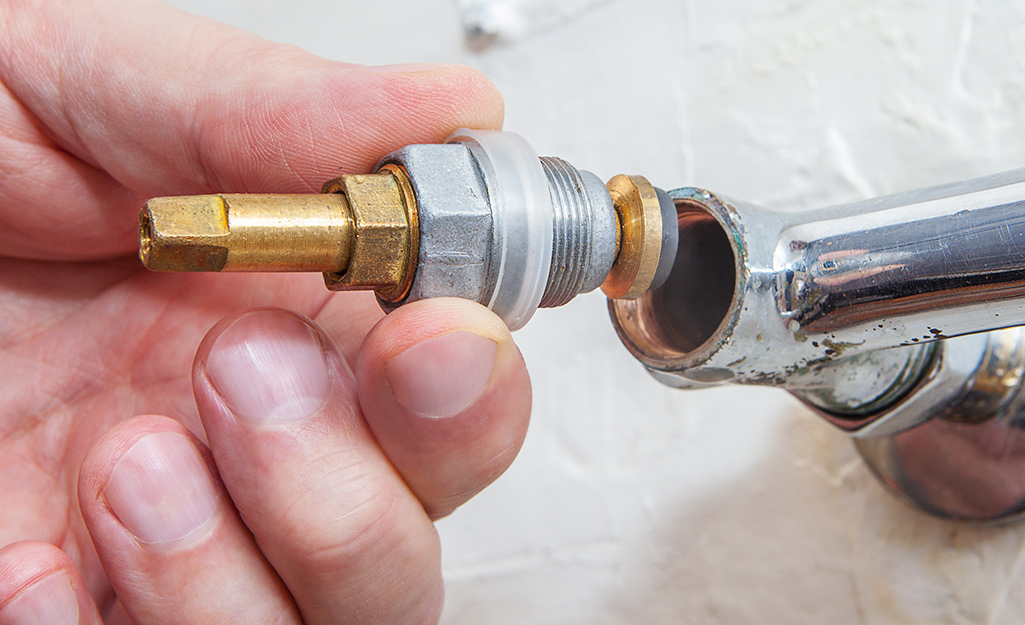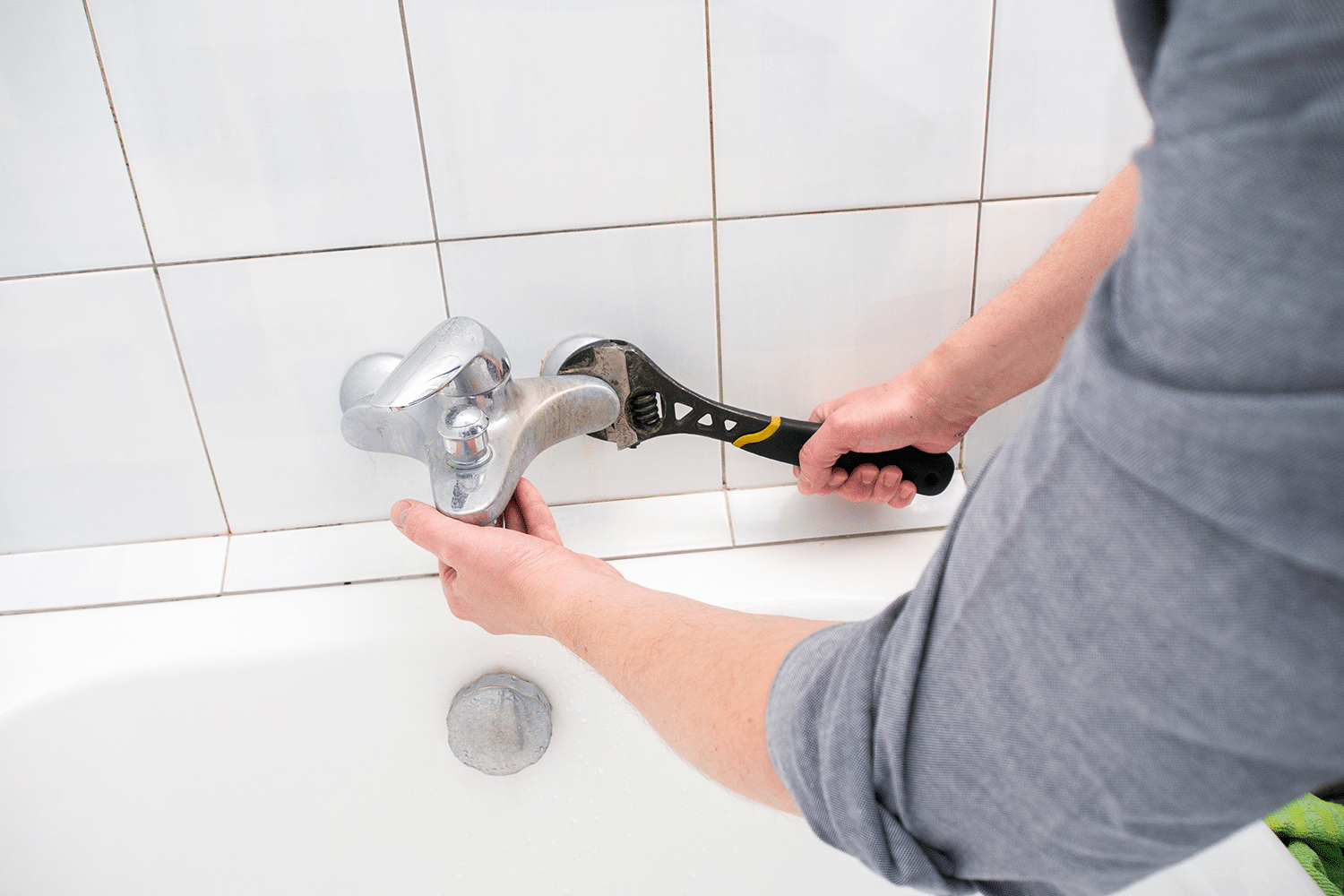How It's Important to Rectify a Broken Faucet
How It's Important to Rectify a Broken Faucet
Blog Article
What're your beliefs about How to Fix a Dripping or Leaky Faucet ?

Dripping faucets may appear like a small inconvenience, but their effect exceeds simply the nuisance of the audio. From drainage to sustaining unnecessary financial costs and health and wellness dangers, neglecting a trickling tap can bring about various effects. In this post, we'll look into why it's important to resolve this usual house concern immediately and successfully.
Waste of Water
Ecological Effect
Leaking taps add substantially to water waste. According to the Epa (EPA), a solitary faucet leaking at one drip per second can squander more than 3,000 gallons of water per year. This not just pressures water sources however also affects ecosystems and wildlife depending on them.
Financial Prices
Raised Water Expenses
Beyond the environmental impact, trickling faucets can inflate water costs considerably. The collected waste in time translates right into greater utility expenses, which can have been prevented with timely fixings.
Possible Building Damages
Furthermore, prolonged trickling can result in damage to components and surfaces bordering the tap. Water accumulation can create staining, deterioration, and even architectural problems if left unattended, causing extra repair prices.
Health and wellness Concerns
Mold And Mildew and Mildew Development
The consistent existence of moisture from a trickling faucet develops an optimal environment for mold and mildew and mildew development. These fungis not only endanger indoor air quality but likewise position wellness dangers, particularly for people with respiratory problems or allergies.
Waterborne Illness
Stagnant water in leaking taps can end up being a breeding place for bacteria and various other pathogens, raising the risk of waterborne illness. Contaminants such as Legionella germs flourish in stationary water, potentially resulting in significant diseases when consumed or breathed in.
DIY vs. Expert Fixing
Advantages and disadvantages of Do It Yourself Repair Service
While some might attempt to take care of a trickling faucet themselves, DIY fixings come with their own collection of obstacles. Without proper understanding and devices, do it yourself efforts can exacerbate the problem or bring about incomplete repair work, extending the trouble.
Advantages of Hiring a Professional Plumber
Employing an expert plumber makes certain that the underlying root cause of the trickling tap is addressed efficiently. Plumbing technicians have the experience and tools to diagnose and repair faucet issues efficiently, saving time and decreasing the threat of more damages.
Step-by-Step Overview to Fixing a Dripping Tap
Devices Called for
Prior to trying to deal with a trickling tap, collect the needed tools, including a flexible wrench, screwdrivers, substitute components (such as washing machines or cartridges), and plumber's tape.
Usual Tap Issues and Their Solutions
Determine the kind of faucet and the specific issue creating the drip. Usual troubles consist of damaged washing machines, corroded valve seats, or faulty O-rings. Describe supplier guidelines or on the internet tutorials for step-by-step guidance on repairs.
Safety nets
Normal Maintenance Tips
To stop trickling taps, carry out routine upkeep such as cleansing aerators, checking for leaks, and replacing damaged components promptly. In addition, think about installing water-saving tools or updating to much more efficient fixtures.
Relevance of Prompt Fixes
Dealing with dripping taps as soon as they're noticed stops more water waste and potential damages, eventually saving both water and cash in the long run.
Influence On Building Value
Perception of Well-Maintained Building
Preserving a residential or commercial property in good condition, consisting of resolving maintenance concerns like leaking taps, improves its regarded value and worth among possible purchasers or tenants.
Influence on Resale Worth
Residences with well-kept plumbing components, including taps, command higher resale values in the property market. Dealing with trickling faucets can add to a favorable impression throughout property assessments and settlements.
Ecological Responsibility
Private Payment to Conservation
Taking obligation for dealing with dripping taps straightens with broader efforts towards water preservation and environmental sustainability. Every person's activities collectively make a considerable influence on preserving precious resources.
Lasting Living Practices
By focusing on prompt repair work and taking on water-saving behaviors, individuals contribute to lasting living techniques that profit both present and future generations.
Verdict
Resolving a leaking tap surpasses mere benefit; it's a necessary action toward conserving water, lowering economic costs, and protecting health and wellness and building. Whether through DIY repairs or professional support, acting to repair leaking faucets is a little yet impactful method to promote responsible stewardship of resources and contribute to a healthier, more sustainable future.
Why Are My Faucets Dripping (And Can I Fix it Myself)?
Causes of a Dripping or Leaking Faucet
Whether you’re hearing drops of water falling and hitting a sink, or noticing water ooze out from the base of the spout, you shouldn’t ignore a dripping or leaking faucet. And, the good news is, sometimes you can fix the problem yourself.
In this article, we’ll review a few common causes of dripping and leaky. We’ll also walk you through some basic ways to find the problem and handle it without calling anyone — and let you know when to call in a pro.
But, no matter what the cause, or whether you can handle it on your own, the sooner you address it, the better.
Each drip may be a tiny amount of water. But, they all add up quickly. According to the U.S. Geological Survey, one faucet losing one drop every 20 seconds — five a minute — wastes around a liter of water every day, and 173 gallons a year.
Add in more than one in your house, and it’s a lot of water to waste. So, we’ll help you get to the bottom of things quickly.
Four Reasons Your Faucet May Be Dripping
Aerator is Damaged or Unseated Valve Seat is Corroded O Ring is Loose or Worn Out Part of the Assembly is Loose Aerator is Damaged or Unseated
If you unscrew the end of your faucet, you’ll find the aerator. It’s the little stem piece with a screen on it that shuts off the water circulation.
If it’s damaged, or if it’s not sitting right, it will allow water to pass through.
Valve Seat is Corroded
Next is the valve seat, which is connected to the washer. If the washer wasn’t in place correctly, then it could have ground against the seat. Over time, this damages the valve seat.
The problem could also be corrosion: Over time, the part has worn out, and it’s now allowing water to pass through.
O Ring is Loose or Worn Out
Since the o ring is only a small rubber gasket, it’s a common reason why the faucet is dripping. You’ll find it at the base of the faucet, and it’s there to keep water from coming out where it’s not supposed to.
However, it’s common for the o ring to wear out over time. When it does, you’ll notice a drip.
Part of the Assembly is Loose
So far, we’ve looked at a few small, specific parts. But, the problem could be anywhere in the assembly if something’s out of place.
Even if a part isn’t damaged, over time, it may have become loose or dislodged. It could be the parts we mentioned, or the aerator at the tip of the faucet, the stem itself,
Can I Fix a Leaky Faucet Myself?
Depending on the problem, and how handy you are, there’s a chance you can fix a leaky faucet without calling a professional. But, you do run the risk of making the problem worse.
If it’s a small drip, you can certainly try a few troubleshooting tactics. We’ll walk you through them in a moment.
But, no matter what, your first step should be shutting off the water coming into the faucet. You should find a shutoff valve under the sink on the pipes leading to it. Turn each one clockwise until they close tightly.
Next, make sure you have the right tools for whatever you’re attempting. It’s tempting to make do with what you have. But, you need the right ones for a reason: You’re often dealing with small parts that can break if you handle them carelessly.
If you’re feeling confident, here are some places to start.
Items Near the Tip of the Faucet
A few of the parts we mentioned — particularly the valve seat and washer — are located at the tip of the faucet where the water comes out. They’re easy to access, making it a good place to start.
Check the O Ring
To check the o ring, you’ll need to take off the spout at the base. It’s easiest on kitchen sinks with long spouts, versus the smaller, bulkier base on most bathroom sinks.
Either way, this can be tricky, so do it carefully and don’t force anything. If it’s not coming right off, you’re much better off calling in a pro than possibly breaking something.
For a kitchen sink, there’s usually a nut or coupling assembly at the base of the spout. These often slide off easily without using any tools.
Once you’ve disassembled those parts, gently but forcefully twist off the spout.
Then, you can see the o rings. There should be two of the rubber gaskets on the base. If they look worn or damaged, replace them, and see if that solves the problem.

Hopefully you enjoyed our topic about Water Dripping from Faucet: Why and How to Fix. Thanks so much for taking time to read through our posting. For those who liked our blog posting plz don't forget to pass it around. I enjoy reading our article about Leaky Faucets: Why They Happen & What to Do About Them.
Report this page